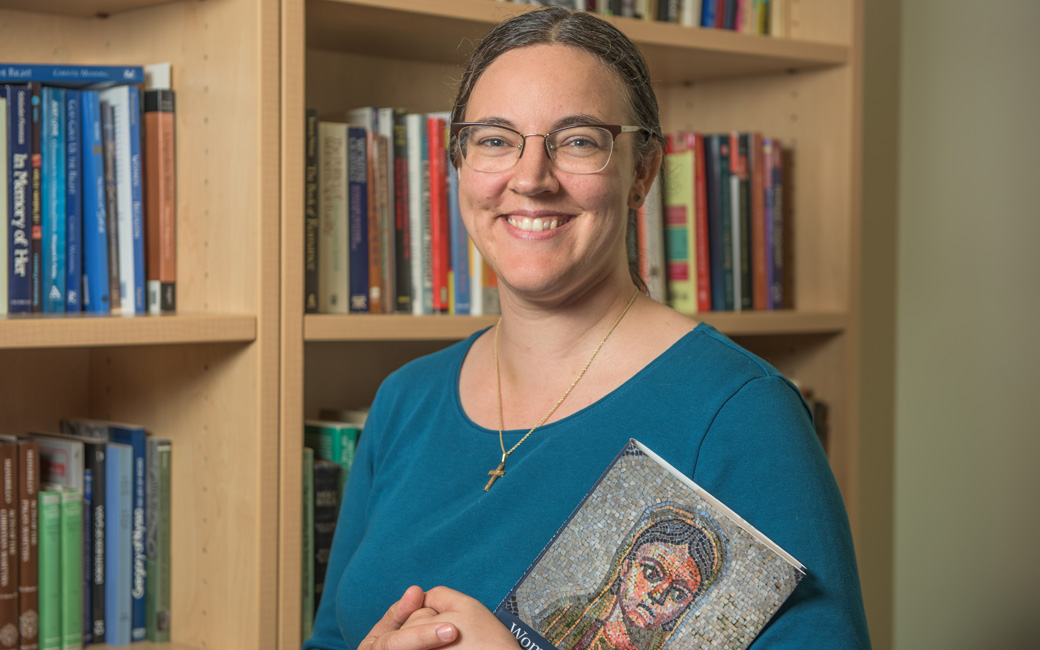Kate Wilkinson
Associate Professor Kate Wilkinson knows that personal attention is an important part of what makes the Towson University experience so special.

Students visit Kate Wilkinson’s office for more than just advice on how to improve their grades and plan their class schedules.
The Harvard Divinity School graduate’s door is open for chats covering everything from the writing and research process to what it means to be both Catholic and a feminist.
She says personal attention is an important part of what makes the Towson University experience so special.
“For a big state university,” explains Wilkinson, “TU offers smaller class sizes and better access to professors than students would get at most small, liberal arts colleges.”
A TU faculty member since 2009, the associate professor offers that personal attention to students in a range of courses, including Feminist Theory, International Perspectives on Women, and The Diversity of Women.
“ For a big state university, TU offers smaller class sizes and better access to professors than students would get at most small, liberal arts colleges. ”
She is also the department chair of the Department of Women’s and Gender Studies and former pragram director of the Women’s and Gender Studies (M.S.) which afforded her opportunities to mentor students and serve as an adviser for independent studies.
Besides close interaction with faculty, says Wilkinson, another valuable advantage of the graduate program in women’s and gender studies is its flexible format, which lets students tailor their curricula to meet individual needs and career goals.
Wilkinson, who earned a Ph.D. in religion and a certificate in women’s studies from Emory University, focuses her research on gender and sexuality in the early Christian church. Her areas of expertise include early Christianity, feminist historiography, feminist ethnography and comparative study of religion.
Wilkinson’s most recent book is titled, “Women and Modesty in Late Antiquity.” The work explores how aristocratic women in the late years of the Roman Empire used conventions of modesty to carefully create reputations that empowered them in political-theological settings.